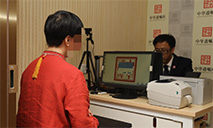Lettuce could protect astronauts' bones on long spaceflights: study
LOS ANGELES, March 24 (Xinhua) -- Researchers at the University of California, Davis have developed a genetically modified lettuce producing a drug to protect against bone density loss in microgravity during long spaceflights.
Spending time in microgravity may cause astronauts to lose bone mass. This can be treated with a drug called parathyroid hormone (PTH), but it requires regular injections, according to the researchers.
They developed a genetically modified lettuce that expresses a fusion protein combining PTH with part of a human antibody protein.
The fusion protein is designed to be stable in the bloodstream and to allow astronauts to potentially purify the drug from plant extracts, said Somen Nandi, adjunct professor at the UC Davis Department of Chemical Engineering.
The work was presented this week at the Spring meeting of the American Chemical Society in San Diego.
The team is evaluating the plants for how much of the drug they can produce. Ideally, the drug would be in an orally available form, so that astronauts could dose themselves with PTH by eating lettuce leaves, said the researchers.
Photos
 Increasingly more young adults in China register wills that include virtual assets
Increasingly more young adults in China register wills that include virtual assets Rapeseed flowers turn NW China's Luoping into picturesque spring wonderland
Rapeseed flowers turn NW China's Luoping into picturesque spring wonderland Why do people in China fall for animated characters like LinaBell and Bing Dwen Dwen?
Why do people in China fall for animated characters like LinaBell and Bing Dwen Dwen? Photo Album: architecture in Beijing merging history and modernity
Photo Album: architecture in Beijing merging history and modernity
Related Stories
- Chinese astronauts give second lecture from space station
- China's female astronaut sends Int'l Women's Day greetings from space
- Astronaut Wang Yaping fulfills her lawmaker duties from space
- Astronauts in orbit to send New Year greetings to Chinese youths
- Countries urged to protect safety of in-orbit astronauts
Copyright © 2022 People's Daily Online. All Rights Reserved.






